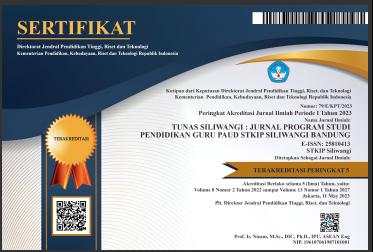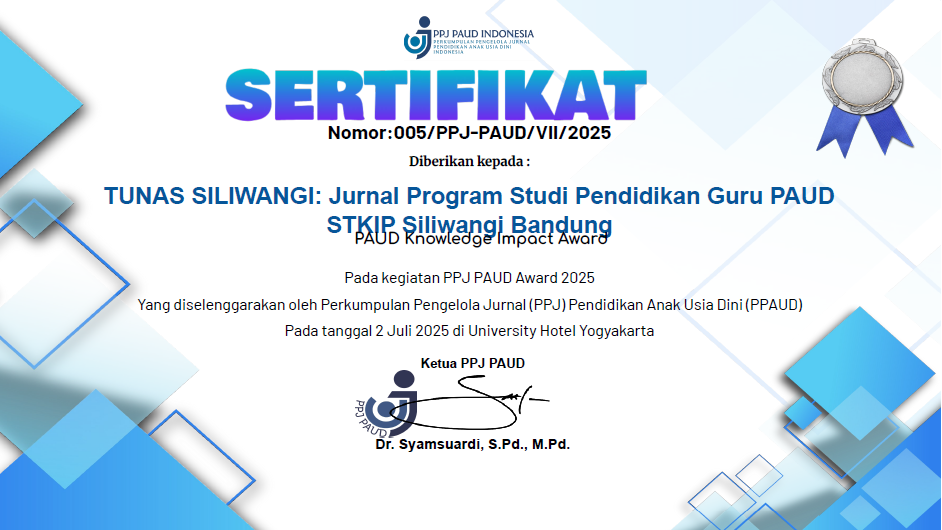Access to english educational resources for children from low socio-economic backgrounds: a cultural value based on ethno-parenting
DOI:
https://doi.org/10.22460/ts.v11i2.6575Keywords:
English Education Low Socio-economic Status Ethno-parentingLocal Culture, English Education, Low Socio- economic Status, Ethno-parenting, Local CultureAbstract
This study aims to analyze access to English language education resources for children from families with low socioeconomic backgrounds and the role of culturally based ethno-parenting in supporting their learning. Participants consisted of six parents and six elementary school-aged children in Mataram. Data were collected through in-depth interviews, observations, and questionnaires, and were then analyzed thematically with source triangulation to maintain validity. The results indicate that the primary obstacle faced by parents is economic constraints, which result in a lack of English learning facilities, including books, courses, and technological devices. Although almost all families own mobile phones, they are primarily used for entertainment rather than for educational purposes. From an ethno-parenting perspective, parents continue to instill local cultural values such as politeness, cooperation, and respect for elders. This, in some cases, supports motivation to learn English, but in other cases, it actually creates resistance because it is perceived as displacing the role of regional languages.
References
Anwar, M.S. (2022). ‘Ketimpangan aksesibilitas pendidikan dalam perpsektif pendidikan multikultural’, Foundasia, 13(1), pp. 1–15. Available at: https://doi.org/10.21831/foundasia.v13i1.47444.
Asifayanti. (2015). ‘PENGARUH TINGKAT KEMAMPUAN SOSIAL EKONOMI ORANGTUA TERHADAP PRESTASI BELAJAR BAHASA INGGRIS PESERTA DIDIK SCHOLARS ENGLISH CLUB DI SD ANGKASA PURA KABUPATEN MAROS’, Nhk技研, 151, pp. 10–17.
Deswalantri et al. (2024). ‘Pengaruh Status Sosial Ekonomi Terhadap Prestasi Belajar Siswa Pada Pembelajaran Bahasa Indonesia’. Cahaya Mandalika. 03(Pendidikan), pp. 1531–1540.
Erna, N. et al. (2021). ‘Pembelajaran Bahasa Inggris untuk Anak Usia Dini’, 8N0.01.
Fachmi, T. et al. (2021) ‘Pola Asuh Islami : Antara Transformasi Nilai-Nilai’, Geneologi PAI: Jurnal …, 8(02), pp. 423–432. Available at: http://www.jurnal.uinbanten.ac.id/index.php/geneologi/article/view/5340%0Ahttp://www.jurnal.uinbanten.ac.id/index.php/geneologi/article/download/5340/3349.
Herawan, B. dkk. (2025). ‘Pengaruh Globalisasi Terhadap Cara Pandang Orang Tua Terhadap Pendidikan Anak di Kampung Bantara Tanah Merah’, 02, pp. 777–783.
Linse, Caroline., et al. (2014). ‘Parents and young learners in English language teaching: global practices and issues in school–home contacts’, ELT Research Papers, 14(04). Available at: http://englishagenda.britishcouncil.org/research-papers/parents-and-young-learners-english-language-teaching-global-practices-and-issues-sch.
Nukman, M., Mariana, N. and Subrata, H. (2024). ‘Upaya pemertahanan budaya lokal dalam pembelajaran bahasa asing pada perspektif glokalisasi’, Jurnal Review Pendidikan dan Pengajaran, 7(1), pp. 276–283. Available at: https://journal.universitaspahlawan.ac.id/index.php/jrpp/article/view/23491/16974.
Oktaria, R. and Putra, P. (2020). ‘Pendidikan Anak Dalam Keluarga Sebagai Strategi Pendidikan Anak Usia Dini Saat Pandemi Covid-19’, Jurnal Ilmiah Pesona PAUD, 7(1), p. 41. Available at: https://doi.org/10.24036/108806.
Phillips, J.K. and Stern, H.H. (1986). ‘Fundamental Concepts of Language Teaching’, The Modern Language Journal, 70(1), p. 56. Available at: https://doi.org/10.2307/328070.
Puspawati, D. and Ulya, N. (2021). ‘Peran Ethnoparenting Dalam Menanamkan Nilai Kesopanan Pada Anak Usia Dini’, The 7th Annual Conference on Islamic Early Childhood Education, pp. 115–126. Available at: http://conference.uin-suka.ac.id/index.php/aciece/index.
Riski Anisa (2023). ‘Pola Asuh Anak Usia Dini pada Keluarga Buruh Pabrik (Studi Kasus di Desa Kedunglengkong Kecamatan Simo Kabupaten Boyolali)’, Khirani: Jurnal Pendidikan Anak Usia Dini, 1(4), pp. 34–49. Available at: https://doi.org/10.47861/khirani.v1i4.542.
Schmidt, D.A. et al. (2009). Technological Pedagogical Content Knowledge (TPACK): The Development and Validation of an Assessment Instrument for Preservice Teachers, Journal of Research on Technology in Education. Available at: www.iste.org.
Shim, J.M. (2018). ‘Involving the Parents of English Language Learners in a Rural Area: Focus on the Dynamics of Teacher-Parent Interactions’, The Rural Educator, 34(3), pp. 18–26. Available at: https://doi.org/10.35608/ruraled.v34i3.396.
Downloads
Published
Issue
Section
License
Copyright (c) 2025 Aulia Dwi Amalina Wahab, Ika Rachmayani, Hema Alini Manihuruk, Niluh Putu Nina Sriwarthini

This work is licensed under a Creative Commons Attribution-ShareAlike 4.0 International License.
The author is responsible for acquiring the permission(s) to reproduce any copyrighted figures, tables, data, or text that are being used in the submitted paper. Authors should note that text quotations of more than 250 words from a published or copyrighted work will require grant of permission from the original publisher to reprint. The written permission letter(s) must be submitted together with the manuscript.







